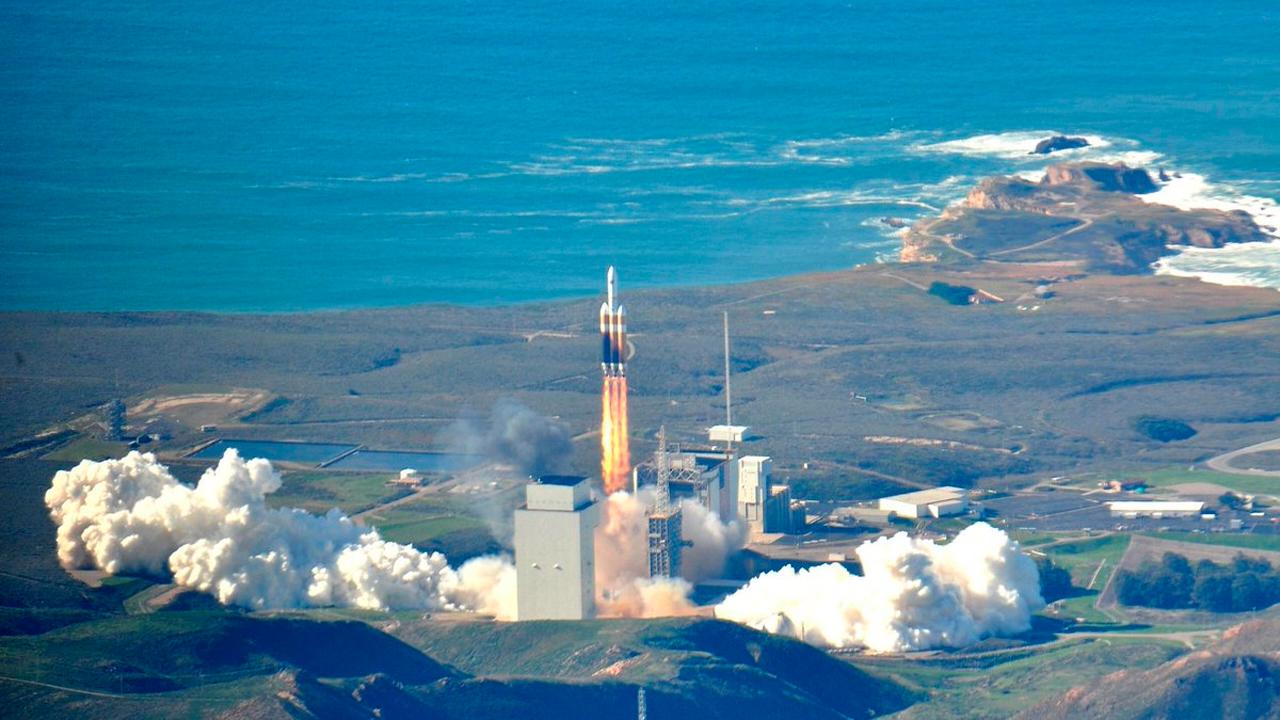Billions flow to US space industry, but reckoning looms
An unprecedented amount of outside investment is flowing into the U.S. space industry, but the sector is bracing for a wave of expected failures as startup firms grapple with developing a viable way to make money in the commercial market.
Angel investors, private equity firms, large U.S. corporations and others are flooding the sector with funding, helping to prop up companies that are working on everything from launch vehicles and antennas for small satellites, to off-planet development on the moon.
Venture capitalists alone invested $1.6 billion in the industry in 2017, according to an analysis by Bryce Space & Technology. The total industry is valued at over $18 billion. But experts say many startups will have difficulty developing a profit model beyond the initial backing and may end up shuttering in the next 12 to 24 months.
They'll "be a number of winners, but I expect there to be far more losers,” Shahin Farschchi, partner at venture capital firm Lux Capital, told Fox Business. “The danger here is that there are a lot of companies that are attempting to offer otherwise commodity products that require massive upfront investment in hopes of being able to compete with otherwise traditional products.”
Such a phenomenon is common in industries that experience a quick and substantial infusion of cash. But the potential wave of failures is raising concerns over how fast it could reverberate through the still-burgeoning industry.
“It’s a house of cards, where if one side of the industry -- the demand or the supply side fails – fails to develop sufficiently, then the whole investment thesis around the industry could come tumbling down,” said industry analyst Chris Quilty.
For the past few decades, satellite communications has dominated the space industry. But technological advancements are making it easier and cheaper to launch products into space, resulting in a litany of new companies seeking to offer the historical benefits at a cheaper cost.
OneWeb, for example, is aiming to launch a constellation of low-orbit, small satellites to provide broadband access across the globe. The London-based firm is one of a handful of industry giants -- including companies like Jeff Bezos-backed Blue Origin and Elon Musk-owned SpaceX – that are receiving the bulk of the funding from outside investors that include Airbus, Coca-Cola and SoftBank.
But improvements in small satellite technology is creating a market for other uses beyond telecommunications, and the increased value of data is making it more financially attractive for startups to create products to, among other things, take daily images of the planet for monitoring. But future earning potential remains a key question.
“Earth observation is the little stepchild part of the industry that’s been trying to commercialize, but 85 percent of the revenue are still coming from government customers,” Quilty said. “The business model is not yet proven.”
Companies are pursuing everything from weather monitoring, to ship and aircraft tracking and other, more specialized applications. Planet Labs is one firm pursuing such a business model, offering global imaging services for agriculture, emergency response, supply chain and other business sectors. The San Francisco-based company in 2018 closed a $168 million funding round.
| Ticker | Security | Last | Change | Change % |
|---|---|---|---|---|
| I:DJI | DOW JONES AVERAGES | 50135.87 | +20.20 | +0.04% |
| SP500 | S&P 500 | 6964.82 | +32.52 | +0.47% |
| I:COMP | NASDAQ COMPOSITE INDEX | 23238.66991 | +207.46 | +0.90% |
Others like Blue Canyon Tech are seeing success building and operating the small satellites for customers that include the federal government. The Boulder, Colorado-based firm recently won a $1.54 million contract with the Defense Advanced Research Projects Agency -- the Pentagon’s investment arm – to build a constellation of smaller satellites that could replace a large one and make it more difficult for adversaries to target.
The expansion of small satellites is also leading to an explosion in ancillary industries to develop supporting technology like propulsion and antennas.
Momentus, for example, is developing an engine run on water plasma that could reduce costs for customers by helping to avoid collision in low-orbit, thus prolonging the life of small satellites while making it easier for the machines to explore space. The Santa Clara, California-based company closed an $8.5 million investment round last year.
CLICK HERE TO GET THE FOX BUSINESS APP
On top of private investment, the federal government has taken various approaches to providing funding to advance the industry.
A grant program from the Small Business Administration has been a critical lifeline for many startups. And despite what experts say are concerns from the National Aeronautics and Space Administration (NASA) on picking winners and losers among the slew of new companies, the independent agency has announced a number of funding programs.
“The government is seeing how it can be a customer and take advantage of what they’re offering. At the same time as being an early customer for some of the companies, they also act as essentially an anchor,” said Mike French, senior vice president at Bryce Space and Technology.




















